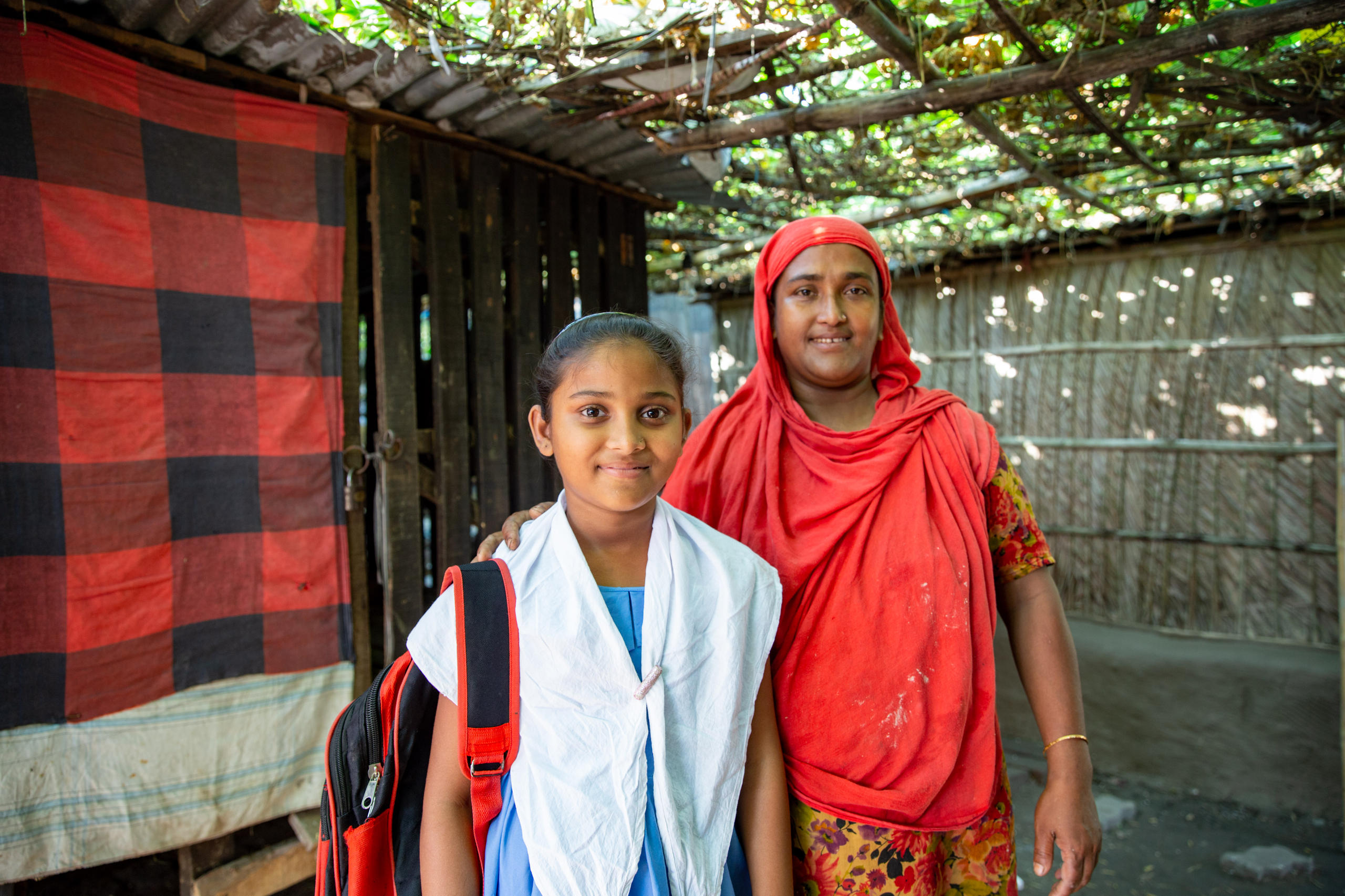Why international development cooperation Suma Begum
Every year, Bangladesh is hit by hurricanes, which sweep through the land and cause flooding. People have fled to the slum from their homes in other areas of the country that have become uninhabitable.
There are very few opportunities for working and earning money in the slum; the people there live in extreme poverty. Suma has learned how to grow vegetables at home – not just in her front yard but also in bags on the roof, on the walls of the house, alongside her house and in her back yard. The vegetables growing on the roof keep the house pleasantly cool when the weather gets hot.
Suma uses most of the vegetables herself. But if she has any left over, she makes some money by selling them to her neighbours or at the market. Now she has an independent source of income that enables her to support herself and her daughters.
Projects like these enable people like Suma to escape poverty and feed their own families. They allow people who have had to flee from the damage caused by climate change to establish a new life elsewhere. And of course the natural materials and the vegetables on the roofs keep the houses cool. That means people use less power for air conditioning or electric fans. Bangladesh still relies mainly on fossil fuels to generate electricity, which is a source of CO₂ emissions. And every ton of CO₂ that can be avoided – anywhere in the world – is a step towards slowing down climate change. In the end, that benefits people across the world, including Germany.
As at: 17/10/2024
